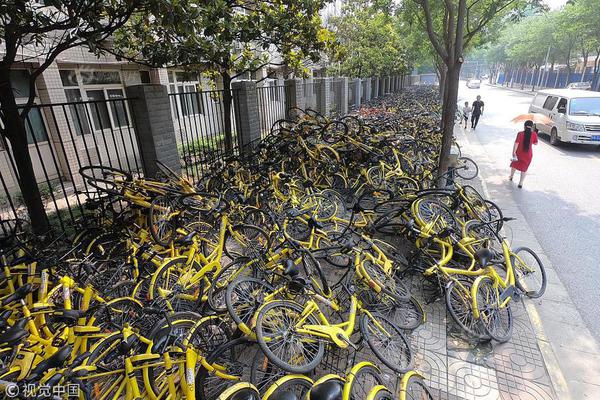2018 has been one toxic year.
You know it,home video sex we know it, and the Oxford Dictionary knows it. The prestigious publisher has chosen their Word of the Year, and this time, it's "toxic."
SEE ALSO: How a ridiculous game uses jousting dicks to interrogate toxic masculinity"The Oxford Word of the Year is a word or expression that is judged to reflect the ethos, mood, or preoccupations of the passing year, and have lasting potential as a term of cultural significance," reads on online statement from the dictionary.
"In 2018, toxicadded many strings to its poisoned bow becoming an intoxicating descriptor for the year’s most talked about topics."
Dictionaries like the Oxford, Merriam-Webster, Macquarie and Dictionary.com pick their words of the year based on the frequency of online lookups — last year, Oxford's was "youthquake."
What made the shortlist for 2018? Gaslighting, incel, techlash, gammon, cakeism, overtourism, orbiting and of course, Big Dick Energy.
According to data collated by the dictionary, the word "toxic" saw a 45 percent rise in the number of times it's been looked up on the Oxford Dictionary website in 2018.
But it's not just looked up alone. Over the last year these ten habitually associated words, or collocates, were the most looked up:
Chemical
Masculinity
Substance
Gas
Environment
Relationship
Culture
Waste
Algae
Air
Toxic masculinity stands out, right? It's the second most associated word people have looked up in the dictionary online. It makes sense considering the last 12 months, with the #MeToo and Time's Up movements championing the abolition of toxic masculinity, and toxic relationships (number six on the list).
Toxic chemical, however, is the most looked up. Oxford suggests this could be due to news stories of the last 12 months involving these, like the nerve agent poisoning of a former Russian intelligence officer and his daughter, and global concern over the world’s toxic chemical stockpiles.
Toxic environment could mean multiple things, from recent shifts in attitude toward harassment in the workplace to recent reports of extreme air pollution in India. The same goes for toxic culture, which could relate to workplace unrest akin to Google's mass walkouts.
So, you've made it this far, you must want to know where the word "toxic" comes from?
"The adjective toxicis defined as ‘poisonous’ and first appeared in English in the mid-seventeenth century from the medieval Latin toxicus, meaning ‘poisoned’ or ‘imbued with poison’," reads the Oxford Dictionary's definition.
"The medieval Latin term was in turn borrowed from the Latin toxicum, meaning ‘poison’, which has its origins in the Greek toxikon pharmakon– lethal poison used by the ancient Greeks for smearing on the points of their arrows."
(Editor: {typename type="name"/})
 Best Garmin deal: Save $50 on the Venu 3S at Best Buy
Best Garmin deal: Save $50 on the Venu 3S at Best Buy
 Knicks star Derrick Rose and two friends cleared in civil sex assault trial
Knicks star Derrick Rose and two friends cleared in civil sex assault trial
 Here are all the updates Apple could give to Macs next week
Here are all the updates Apple could give to Macs next week
 Nintendo is about to reveal NX, its next gaming system
Nintendo is about to reveal NX, its next gaming system
 Skates in the deep sea may incubate eggs near 'black smoker' vents
Skates in the deep sea may incubate eggs near 'black smoker' vents
PSG vs. Liverpool 2025 livestream: Watch Champions League for free
 TL;DR:Live stream PSG vs. Liverpool in the Champions League for free on RTÉ Player. Access th
...[Details]
TL;DR:Live stream PSG vs. Liverpool in the Champions League for free on RTÉ Player. Access th
...[Details]
Dancing with a mannequin head is way funnier than you'd expect
 Dance crazes come and go -- and some just refuse to leave.While the Harlem Shake and 'Uptown Funk' p
...[Details]
Dance crazes come and go -- and some just refuse to leave.While the Harlem Shake and 'Uptown Funk' p
...[Details]
What to drink during tonight's debate, based on your specific political anxieties
 The third and final presidential debate is tonight. You've already had two test runs to figure out w
...[Details]
The third and final presidential debate is tonight. You've already had two test runs to figure out w
...[Details]
Sheryl Crow and her friends have had it with the long election cycle
 Most voters will likely agree that the current election cycle is way too long, but Sheryl Crow is tr
...[Details]
Most voters will likely agree that the current election cycle is way too long, but Sheryl Crow is tr
...[Details]
Nvidia Pascal Goes Mobile: GeForce GTX 1080, 1070 & 1060 Preview
Poor Brian Williams can't quite say WikiLeaks
 The 2016 election has been so plagued by scandal and controversy that it's been difficult to focus o
...[Details]
The 2016 election has been so plagued by scandal and controversy that it's been difficult to focus o
...[Details]
Londoner leaves notes for strangers to make their commutes bearable
 LONDON -- In the crush and crowd of our daily commutes, it's easy to lose sight of the positive aspe
...[Details]
LONDON -- In the crush and crowd of our daily commutes, it's easy to lose sight of the positive aspe
...[Details]
Britain's grand plan for Brexit is to export tea, jam and biscuits to Japan
 British people are going through very uncertain times after the Brexit vote. But worry no more: The
...[Details]
British people are going through very uncertain times after the Brexit vote. But worry no more: The
...[Details]
EPA's leader is open to reconsidering crucial climate assessment
 Scott Pruitt, the administrator of the Environmental Protection Agency (EPA), signaled in testimony
...[Details]
Scott Pruitt, the administrator of the Environmental Protection Agency (EPA), signaled in testimony
...[Details]
Justin Bieber asks screaming fans to take a chill pill for a second
 The Purpose Tour has been a whimsical journey for Justin Bieber. He's "disguised" himself with a fak
...[Details]
The Purpose Tour has been a whimsical journey for Justin Bieber. He's "disguised" himself with a fak
...[Details]
Pebble smartwatches are coming, but they won't get along with the iPhone

Jurors took photos with Derrick Rose after clearing him of rape

接受PR>=1、BR>=1,流量相当,内容相关类链接。